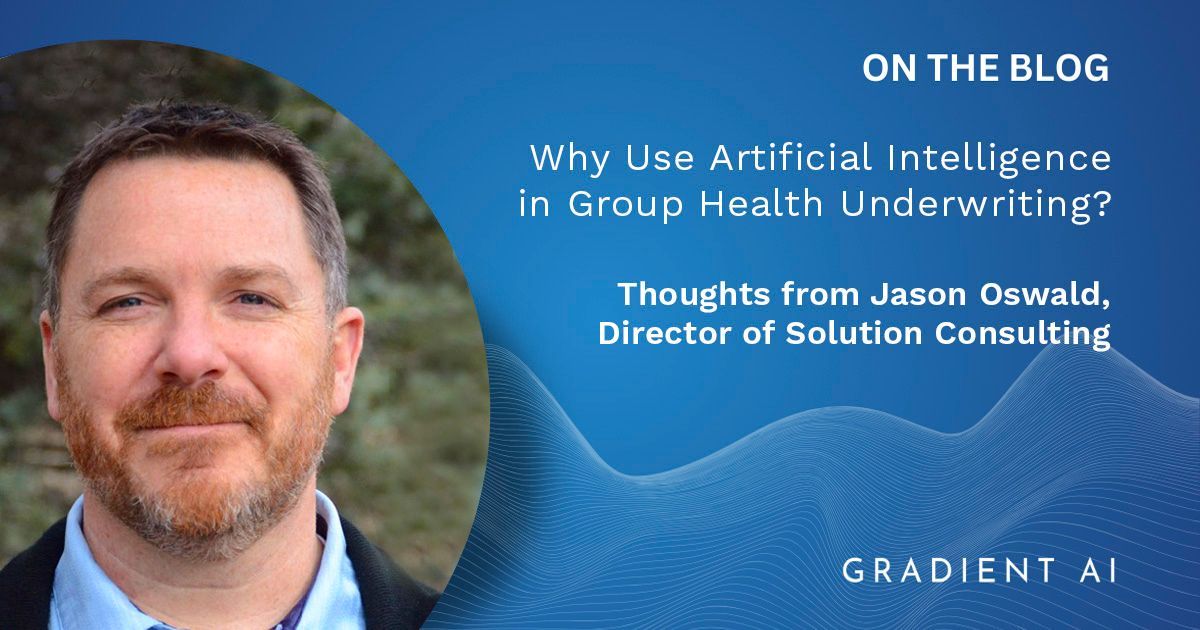Why Use AI in Group Health Underwriting?
Predictive modeling has always been a part of Group Health underwriting. You are setting premium rates for the future given some set of information. Each company – whether traditional carrier, stop loss carrier, MGA/MGU, or pooled risk group -- has a model they’ve developed and adjusted over time based on prior cases and on their own experience.
Incorporating artificial intelligence into underwriting processes is the industry’s way of adjusting and evolving yet again to enhance the models that exist in underwriting, but to do it in a structured way. As data science and machine learning methods improve, so does our ability to predict risk more accurately and efficiently.
How Are Health Carriers Using AI to Improve Underwriting?
I recently participated in a webinar panel discussion on this topic with Jay Sheehy, Chief Underwriting Officer at Gravie, and Sharon Howe, Senior Director of Underwriting at Providence Health Plan.
We discussed how Gravie and Providence Health Plan are currently using big data and artificial intelligence to improve underwriting, win new business, and optimally manage their book of business. Further, we discussed AI’s potential impact on experience volatility, fraud detection, and human error.
How is AI Impacting Underwriting Teams?
One of the consistent misconceptions we hear is that AI will replace the role of the underwriter. In fact, the truth is quite the contrary. AI enhances the underwriter’s ability to make better, more informed decisions by confirming intuitions built by their own experience while overcoming their own biases. It helps the underwriter identify and focus their attention on good risks and price them aggressively and profitably, while avoiding bad risks to maintain a healthy loss ratio.
My fellow panelists shared the positive impact AI has on both new and more seasoned underwriters alike -- from providing a lift to traditional manual rating to reducing bias from experienced underwriters and filling in gaps and providing additional data for newly hired underwriters.
How to Learn More About AI in Group Health Underwriting
Watch the panel discussion, How Carriers Are Using AI to Improve Underwriting, where my industry colleagues and I exchange views on how to unleash the potential of Group Health analytics and AI to make underwriting more efficient and responsive, and provide a better customer experience throughout the customer lifecycle.
The webinar and panel discussion was hosted by
Becker’s Payer Issues and sponsored by
Gradient AI.
Jason Oswald is Director of Solution Consulting at Gradient AI, where he leverages his actuarial and underwriting experience in various funding types to help ensure appropriate use of predictive models. Prior to coming to Gradient AI, Jason spent 15 years in health insurance actuarial and underwriting roles.


